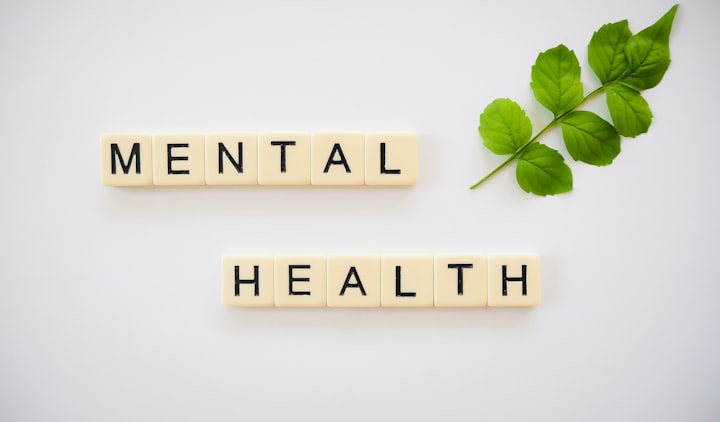The Forgotten Importance of Mental Health
Pandemic Recovery

In a world that continually accelerates its pace, mental health often takes a back seat to the hustle and bustle of everyday life. However, it’s becoming increasingly clear that the well-being of our minds is just as crucial as our physical health. Mental health is not just an absence of illness; it’s a state of well-being that allows individuals to realize their potential, cope with the stresses of life, work productively, and contribute meaningfully to their communities. The importance of mental health cannot be overstated, as it influences every facet of our lives.
The Scope of Mental Health
Mental health encompasses emotional, psychological, and social well-being. It affects how we think, feel, and act in various situations. Good mental health doesn’t mean a life free from challenges, but rather the ability to navigate these challenges with resilience and adaptability. From everyday stressors to major life changes, mental health plays a significant role in our responses and coping mechanisms.
Physical and Mental Health: A Symbiotic Relationship
The relationship between mental and physical health is intimate and reciprocal. Just as physical health issues can impact mental well-being, mental health problems can also manifest as physical symptoms. Stress, anxiety, and depression, for instance, can lead to sleep disturbances, cardiovascular issues, and weakened immune systems. Thus, neglecting mental health can set off a chain reaction that affects every aspect of our bodies and lives.
Productivity and Creativity
Mental health directly influences our ability to perform well at work, engage in creative pursuits, and achieve our goals. When our minds are balanced and our emotional reserves are healthy, we’re better equipped to concentrate, solve problems, and innovate. Cultivating good mental health can lead to increased productivity, job satisfaction, and a sense of accomplishment.
Relationships and Social Connections
Healthy relationships are built on open communication, empathy, and understanding — all of which are closely tied to mental health. When individuals struggle with their mental well-being, it can strain their relationships and hinder their ability to connect with others. On the other hand, those who prioritize mental health tend to foster more meaningful connections and contribute positively to their communities.
Breaking the Stigma
Despite the growing awareness of mental health issues, stigma and misconceptions still persist. Many individuals hesitate to seek help due to fear of judgment or societal prejudices. By promoting open conversations about mental health, we can dismantle these barriers and create an environment where seeking help is not only accepted but encouraged.
The emergence of the COVID-19 pandemic in early 2020 brought with it an unforeseen and profound impact on people’s mental health. The world was thrust into a new reality characterized by lockdowns, social distancing, economic uncertainty, and a heightened sense of fear and anxiety. As we delve deeper into the importance of mental health, it’s crucial to recognize the unique challenges posed by the pandemic and the subsequent need for increased support and understanding.
Isolation and Loneliness
Lockdowns and social distancing measures, while essential for public health, took a toll on people’s mental well-being. The sudden disruption of routines, separation from loved ones, and reduced social interactions led to feelings of isolation and loneliness. Human beings are inherently social creatures, and the absence of face-to-face connections can lead to a decline in mental health.
Uncertainty and Anxiety
The pandemic brought about a sense of uncertainty that affected every aspect of life — from health and employment to future plans. The constant stream of news updates and evolving guidelines contributed to heightened anxiety and stress. Individuals found themselves grappling with the unknown, often with limited resources to cope with the emotional burden.
Grief and Loss
The pandemic brought loss in various forms, including the loss of loved ones, jobs, and a sense of normalcy. Grief is a complex emotional process, and the inability to have traditional mourning rituals and gatherings added an extra layer of difficulty for those who were mourning. The accumulation of these losses took a toll on mental health, with feelings of sadness, anger, and helplessness becoming more prevalent.
Economic Pressures
The economic repercussions of the pandemic led to financial stress for many individuals and families. Job losses, furloughs, and economic uncertainty increased anxiety levels as people worried about their financial security and ability to provide for their basic needs.
Exacerbating Pre-existing Conditions
For those already dealing with mental health conditions, the pandemic posed additional challenges. Disruptions in routine, reduced access to in-person therapy, and the overwhelming news cycle could exacerbate symptoms of anxiety, depression, and other mental health disorders.
In the intricate tapestry of human existence, mental health stands as a vital thread that weaves together our emotions, thoughts, relationships, and aspirations. As we journey through life’s challenges and triumphs, it becomes abundantly clear that the well-being of our minds is not a luxury, but a necessity. Just as we tend to our physical health through exercise and nutrition, the care and nurturing of our mental health are equally deserving of our attention and dedication. By recognizing the profound impact of mental health on every facet of our lives, breaking down barriers of stigma, and fostering a compassionate and supportive environment, we set the stage for a world where individuals can truly flourish — not just in their accomplishments, but in their profound sense of contentment, resilience, and genuine connection to themselves and others. In this endeavor, embracing mental health is not merely a choice; it’s a pledge to honor the sanctity of the human experience.





Comments
There are no comments for this story
Be the first to respond and start the conversation.